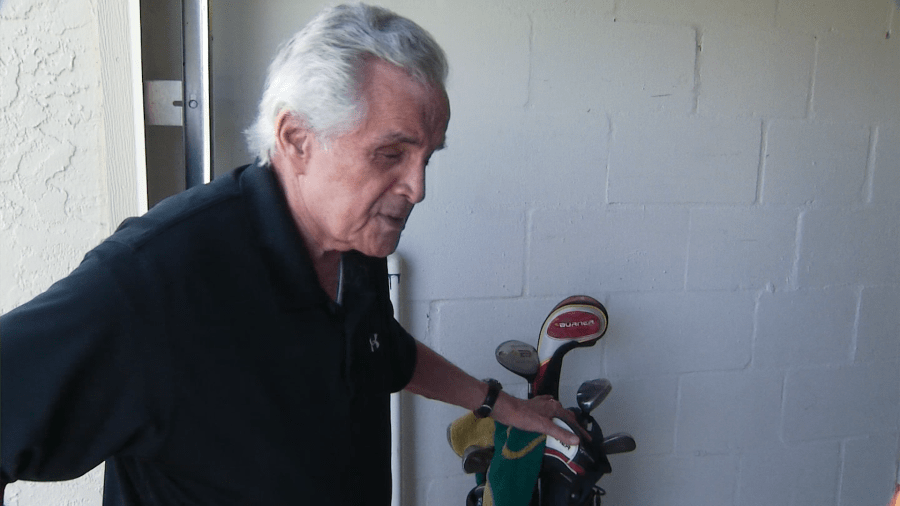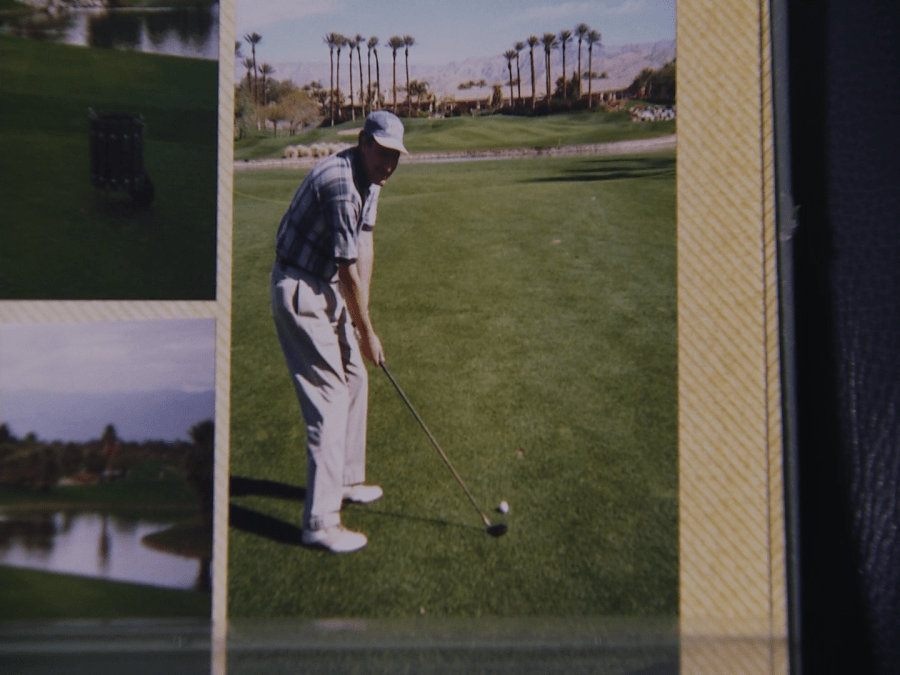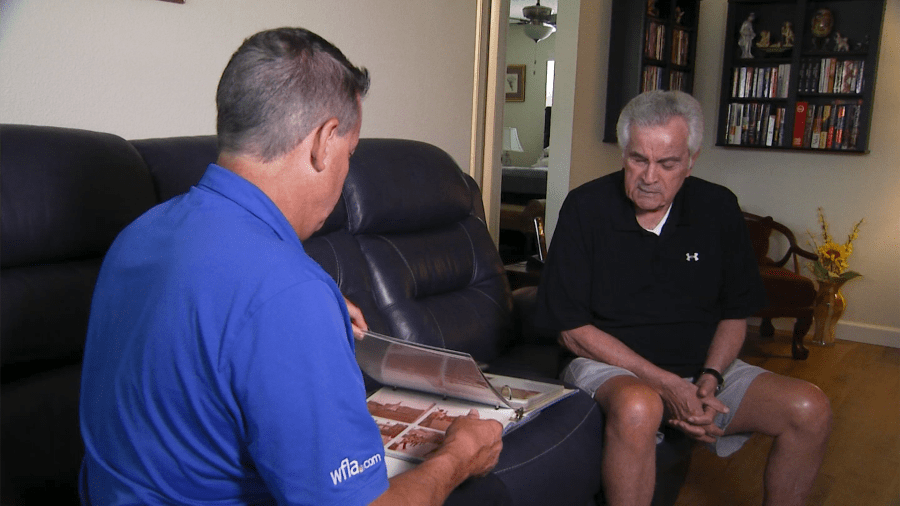DUNEDIN, Fla. (WFLA) — Joe Rodriguez was an active retiree but shadows in his eyesight sent him down a path that changed that.
Rodriguez, 86, of Dunedin, walked a lot slower than he used to as he showed 8 On Your Side the golf clubs he used on a regular basis. Now, they are collecting dust in his garage.
“Seven times I broke 80,” Rodriguez said. “I was a 10 handicap.”
He played softball as well and he first noticed something was wrong while waiting for a grounder at shortstop.
“I would see the ball coming and I was a good fielder,” Rodriguez said. “And all of a sudden when it got within about 10 or 15 feet, I would momentarily lose sight of it.”

According to Rodriguez, a shunt was installed in his left eye in 2017 to relieve pressure and potentially take care of the problem. But after Rodriguez felt pain, the device was removed.
The problem got far worse.
“I lost about 90% of my sight in that eye after that,” Rodriguez said.
Rodriguez claims he was “convinced” by a different doctor to allow a similar operation in his right eye. Pain prompted the removal of that one in 2019, with similar results.
“It went black,” Rodriguez said. “100% blind in that eye.”
Rodriguez acknowledges he now questions why he agreed to the second procedure.
“I’m puzzled by that,” Rodriguez said. “Believe me, I could kick myself but at this point in my life what can I do? Made the mistake and it’s irreparable.”

Rodriguez said he sent a complaint letter to the Florida Department of Health but he has yet to receive a response.
The doctors in Rodriguez’s case have not responded to requests for comment.
In the years following the procedures, after his eyesight did not improve, Rodriguez went to several lawyers.
“It wasn’t about money,” Rodriguez said. “I would’ve probably given it away if I won [in court].”
It did not matter. None of the attorneys he consulted would take his case. Some cited a possible issue with Florida’s statute of limitations on malpractice.
Most said Rodriguez’s age would be an issue with any awarded judgment.
“No earning power,” Rodriguez said. “An 86-year-old man has no income possibility. So, they would just say, ‘Sorry, can’t help you.'”

After Rodriguez ran out of legal options, he focused on awareness for other potential patients.
“I wanted to make sure this did not happen to anyone else,” Rodriguez said. “Other veterans. Seniors. Anyone.”
Now, with the pictures in his photo albums only memories and books replaced by audio versions, he hopes others will pay attention to what happened to him and be more cautious than he was.
“I consider myself an intelligent person but when it came to this, I’m as dumb as a rock,” Rodriguez said. “Because I should’ve never allowed it. I’m sure my wife would agree with that.”
Kristy Dalechek, President of Haven Healthcare Advocates, said doctors are required to to tell patients the risks associated with any procedure.
She said one key is asking the right questions.
“A patient needs to have someone with them, family, friend or professional that can ask those questions for the patient,” Dalechek said. “It happens quite frequently, and it’s not a matter of not asking the questions. They don’t know what they don’t know.”






